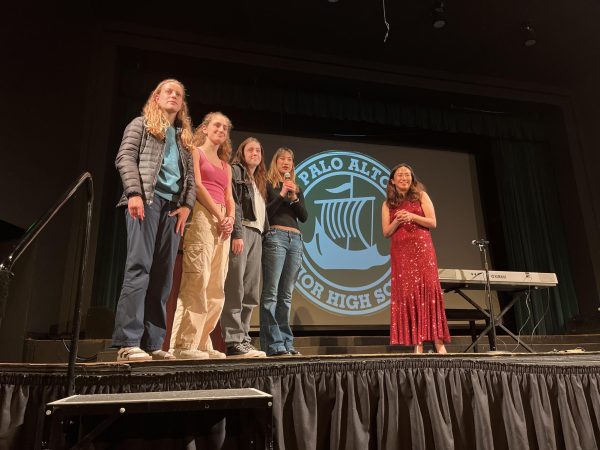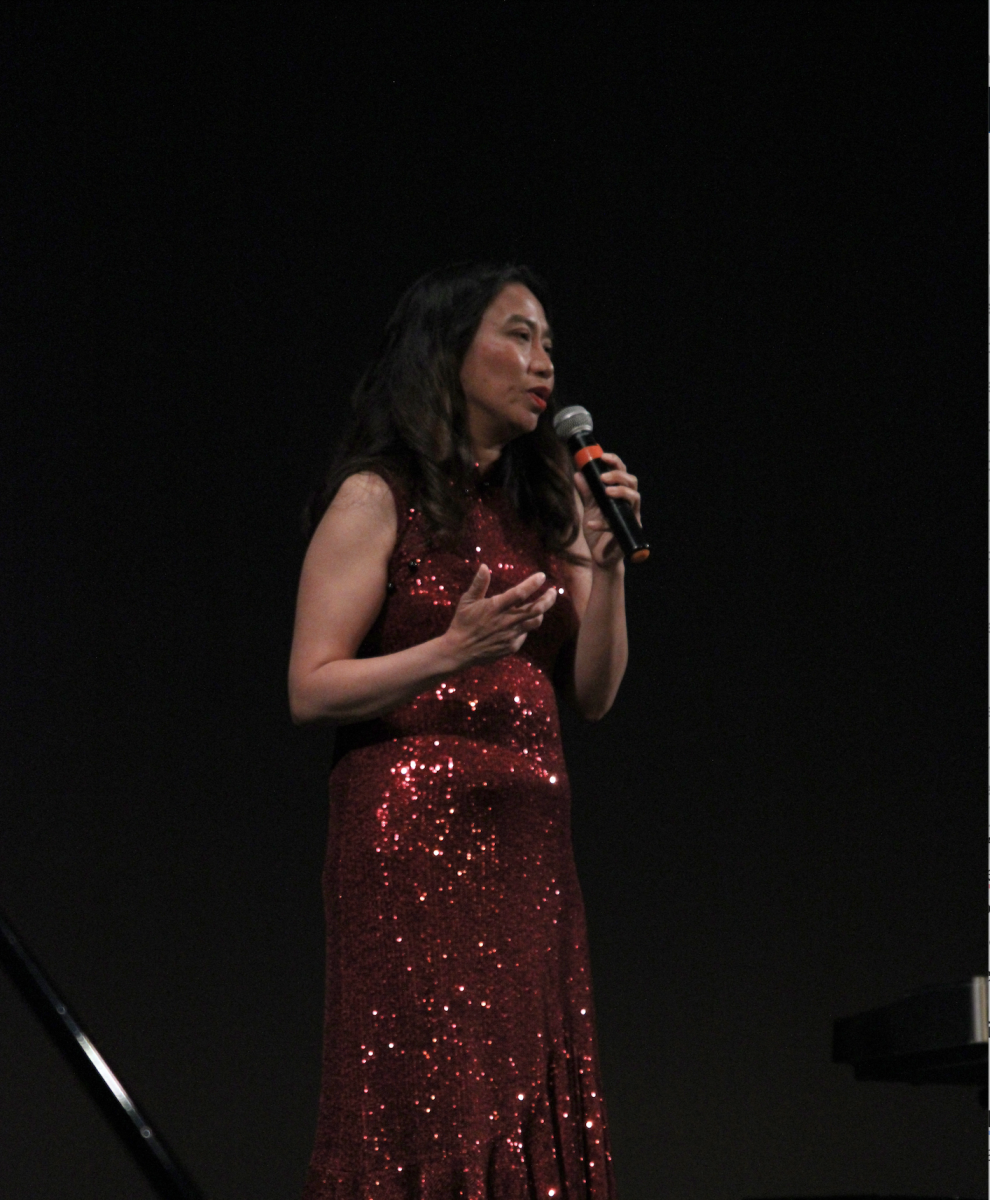Amid the glitz, glamor, and lights, Miramax was considered a powerhouse in the independent film industry in the 1990s. Working at the studio could catapult anyone’s career in film. Yet, Rowena Chiu’s time was vastly different from what she expected as she began working for Harvey Weinstein as an assistant in 1998.
Chiu, one of many accusers of sexual assault by Weinstein, spoke in the Haymarket to Palo Alto High School students on April 25 at an event hosted by the Paly RISE (Responsive Inclusive Safe Environment) Club.
Chiu was forced into signing a non-disclosure agreement to keep her silence after Weinstein sexually assaulted her in 1998; Weinstein was convicted in 2020. When she eventually spoke out in 2019 — in a story retold in the 2022 film “She said” — it contributed to the growing #MeToo movement, a development that sparked increased awareness and transparency about sexual violence and advocacy for preventative measures.
But just recently, as a shock to the #MeToo movement, according to The New York Times, Harvey Weinstein’s conviction in New York was overturned on April 25 due to a legal technicality. Chiu explains how she views this as an injustice of the legal system.
“We’ve had an egregious miscarriage of justice today,” Chiu said. “‘It’s like ripping open a wound’ is what my fellow survivor said today.”
However, Chiu vows to seek justice and mentions the legal reform that she is seeking.
“The work is still to be done,” Chiu said. “His conviction was only the start of the #MeToo movement, not the beginning of it. Today has been a setback but despite the grief that today’s legal action has set about, I hope it will start a conversation about the bias in the legal system, against those with power.”
Chiu mentioned how recognizing the threat of sexual violence is most difficult for those in a preexisting relationship, as it is difficult to recognize when a line has been crossed.
“The way sexual assault and rape is sometimes portrayed in television really does it an injustice in real life.” Chiu said. “There isn’t a moment in time when you know when to run. That’s why it’s called coercive control.”
Chiu described how a lack of consent-based culture contributed to her assault.
“In a room full of lawyers, Harvey said, ‘I’m a man who is very powerful and I don’t fully understand consent,’” Chiu said. “And not one lawyer lifted the phone against him.”
RISE has been partnering with the Paly administration to teach consent education to all ninth and tenth-grade P.E. classes. Bella Nguyen, co-president of RISE, says that teaching the signs of healthy and unhealthy relationships is a key topic in the curriculum.
“We worked with them [One Love] to curate a curriculum unique to Paly that not only teaches Paly students to give and receive consent and identify unhealthy and healthy relationships but also talk about their experiences and help them reflect and brainstorm and how they can make relationships better,” Nguyen said.
Nguyen said Paly’s consent education curriculum is unlike programs at other schools as it is peer-centric rather than teacher-driven.
“Rather than a lesson taught by living skills, it [consent education] was more of a conversation,” Nguyen said. “One of the most important aspects of our program is that it is peer-centric because when teachers teach, it’s not the same as having that peer-to-peer interaction.”

Nguyen explains how RISE got in contact with Rowena to speak at Paly.
“Rowena is actually a Paly parent — one of our math teachers, Mrs. [Natalie] Docktor, is friends with Rowena and suggested that RISE host an event,” Nguyen said. “It was simple and Rowena was very excited to work with us and to pursue this opportunity, so we were lucky with that one because it just came right out.”
Nguyen speaks to why RISE decided to invite Rowena to speak and how her message applies to everyone.
“Rowena can teach us that a lot of people experience the same things as you and it’s okay to speak up and because when you get help, things become better,” Nguyen said. “To stand up for themselves not only for cases around bias, which is a big thing in RISE.”
Chiu described how she is working in classrooms with students as young as elementary level to implement a more consent-conscious environment, a goal that coincides with RISE’s objectives at Paly.
“It’s not your fault where you live in a society where you have to do things to protect yourself,” Chiu said. “We need to change language and culture about body autonomy and consent. If we can change the conservation for really young children we can change the roots of college rape culture.”
Chiu emphasizes the importance of bystander intervention, regardless of how small the conflict or situation is.
“What do you do if you encounter an everyday encounter of power abuse?” Chiu said.” Don’t be a bystander, be an upstander. Show that person who’s suffering from the microaggression that we’re here, we’re with you, and we stand with you.”
